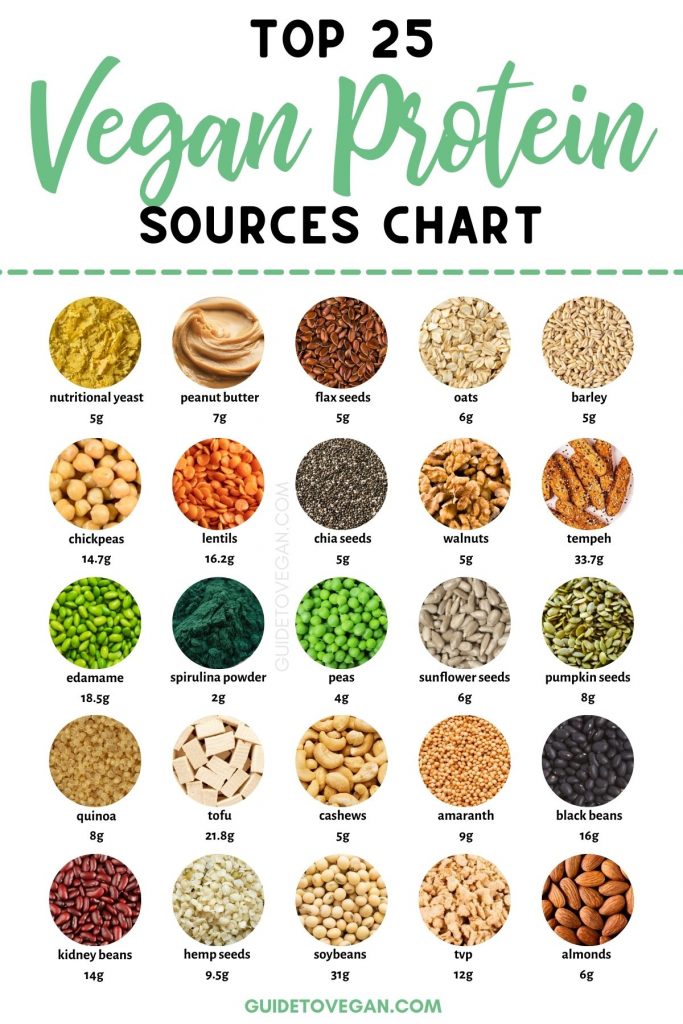As a vegetarian or vegan, ensuring that you are getting enough protein in your diet is crucial for maintaining good health and supporting overall well-being. Many people believe that animal products are the primary source of protein, but there are plenty of plant-based options available that can provide all the essential amino acids your body needs.
As someone who has followed a vegetarian diet for years, I understand the challenges of finding diverse and delicious protein sources. That’s why I wanted to share some of my favorite protein-packed foods that have helped me meet my nutritional needs without compromising my beliefs.
1. Legumes: Lentils, chickpeas, black beans, and other legumes are excellent sources of protein, fiber, and other essential nutrients. They can be easily incorporated into soups, stews, salads, or even made into tasty burgers. One of my go-to meals is a hearty lentil curry, packed with protein and bursting with flavor.
2. Quinoa: This ancient grain is a complete protein, meaning it contains all nine essential amino acids. It’s incredibly versatile and can be used as a base for salads, stir-fries, or as a side dish. The nutty flavor and fluffy texture of quinoa make it a household favorite.
3. Tofu and Tempeh: These soy-based products are popular among vegetarians and vegans due to their high protein content. Tofu can be grilled, stir-fried, or even blended into smoothies for a protein boost. Tempeh, with its nutty flavor and firm texture, can be marinated and grilled for a delicious protein-packed main course.
4. Nuts and Seeds: Almonds, walnuts, chia seeds, and hemp seeds are all great sources of protein, healthy fats, and various vitamins and minerals. Snacking on a handful of nuts or sprinkling seeds over salads, oatmeal, or yogurt can easily increase your protein intake and add a satisfying crunch to your meals.
5. Seitan: Made from wheat gluten, seitan is a meat substitute that is incredibly high in protein. It has a chewy texture and takes on the flavors of the ingredients it is cooked with, making it a versatile option for vegan dishes. I enjoy using seitan in stir-fries or slicing it thinly for sandwiches.
6. Plant-based protein powders: If you find it challenging to meet your protein needs through whole foods alone, plant-based protein powders can be a convenient option. Pea protein, brown rice protein, and hemp protein are popular choices that can be mixed into smoothies or used in baking for an extra protein boost.
7. Edamame: These young soybeans are a delicious and nutritious snack, packed with protein, fiber, and antioxidants. They can be boiled or steamed and enjoyed on their own or added to salads, stir-fries, or soups.
8. Dairy and alternatives: If you are a lacto-vegetarian, dairy products such as Greek yogurt, cottage cheese, and cheese can be excellent sources of protein. For vegans, there are various plant-based alternatives available, such as almond milk, soy yogurt, and cashew cheese. These options offer protein while avoiding animal products.
It’s important to note that when following a vegetarian or vegan diet, it’s necessary to combine different protein sources throughout the day to ensure you are getting all the essential amino acids your body needs. By diversifying your protein intake and incorporating these plant-based options, you’ll have no problem meeting your protein requirements.
In conclusion, being a vegetarian or vegan doesn’t mean you have to compromise on the protein sources your body needs. With a little creativity and exploration, you can discover an array of plant-based foods that are both delicious and nutritious. Embrace the abundance of legumes, grains, nuts, and seeds, and let them fuel your body with the protein it needs to thrive.
